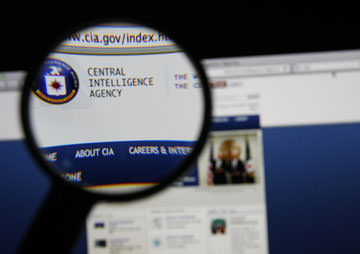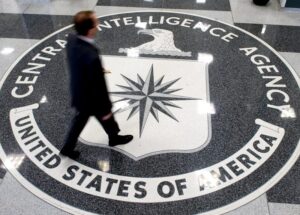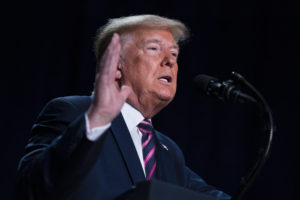The CIA Is Out of Line
We now have even more proof that our burgeoning intelligence agencies, which were given unprecedented latitude to wage war against terrorists, are dangerously out of control.
We now have even more proof that our burgeoning intelligence agencies, which were given unprecedented latitude to wage war against terrorists, are dangerously out of control.
Not that further evidence was needed: Months of stunning revelations about the National Security Agency’s massive domestic surveillance, thanks to fugitive whistle-blower Edward Snowden, should have been more than enough. But this week, one of the intelligence community’s staunchest defenders in Congress took to the Senate floor to announce that even she has had it up to here.
Sen. Dianne Feinstein, D-Calif., who heads the Senate intelligence committee, trained her fury on the CIA, which has waged a five-year campaign of bureaucratic guerrilla warfare to keep the committee from doing a crucial job: fully investigating the torture, secret detention and other appalling excesses committed under George W. Bush and Dick Cheney.
Feinstein accused the CIA of improperly searching computers that intelligence committee staff members were using to review CIA documents about “enhanced interrogation techniques” such as waterboarding — in plain language, torture.
“The CIA just went and searched the committee’s computers,” Feinstein said. “I have grave concerns that the CIA’s search may well have violated the separation-of-powers principle embodied in the United States Constitution.” She said she believed the agency might also have violated the Fourth Amendment, a federal law and a presidential executive order.
This is not just a bunch of rhetoric. It’s a very big deal.
In our democracy, we have a right to know what our government is doing in our name. Agencies whose mandate is to operate in the shadows, such as the CIA and the NSA, obviously cannot announce or even acknowledge most of their actions. The only way we can be assured that the spooks are not running amok is through civilian oversight by our elected officials: the president and members of Congress.
President Obama, to his credit, took immediate measures at the beginning of his first term to outlaw torture, secret overseas detention and other outrageous practices sanctioned by Bush and Cheney. But Obama decided to take a forward-looking approach — and showed no enthusiasm, frankly, for a comprehensive public accounting of past excesses.
Feinstein’s committee properly decided that the torture and harsh detention had been egregious enough to warrant “an expansive and full review.” The CIA had already destroyed the only video recordings of its waterboarding sessions, but there were “literally millions of pages” of cables, emails, memos and other documents that the committee wanted to examine, Feinstein said.
Obama’s first CIA director, Leon Panetta, insisted that the committee’s staff examine the documents — after they had been redacted — at a secure location in Virginia. Feinstein alleges that the CIA improperly searched the committee’s computers at this secure site. Files on those computers, she charges, have mysteriously disappeared.
The CIA’s current director, John Brennan, flatly denied that the agency did anything improper. In an earlier letter to Feinstein, he alleged that it was the committee’s investigators who acted improperly by somehow obtaining a file that the agency never intended to surrender — a kind of detailed index, intended for internal CIA use, highlighting documents that cast the agency in a particularly bad light.
Don’t get lost in the “he-said, she-said” minutiae. Step back and take a wider view. A committee of the U.S. Senate, working on your behalf and mine, has been trying for five years to perform its duty of civilian oversight of the intelligence agencies. Despite the CIA’s best efforts, the committee has put together a 6,000- page draft report — but the CIA is fighting its release tooth and nail. The top-secret document that the CIA seems most determined to hide is not some dossier on al-Qaeda, but an index of the agency’s own excesses and failures.
Now take another step back. Look at how the CIA’s role has expanded to include what most of us would consider military operations, including flying and firing armed drones. Look at the breathtaking revelations about the NSA’s collection of phone call data. Look at how the secret Foreign Intelligence Surveillance Court, in a series of secret rulings, has stretched the Fourth Amendment and the Patriot Act beyond all recognition.
We should want the CIA to be capable of ruthlessness when necessary. We should want the NSA to be overly ambitious rather than overly modest. But then it is our duty, as custodians of this democracy, to haul the spooks back into line when they go too far. Like I said, this is a very big deal.
Eugene Robinson’s e-mail address is eugenerobinson(at)washpost.com.
© 2014, Washington Post Writers Group
Your support matters…Independent journalism is under threat and overshadowed by heavily funded mainstream media.
You can help level the playing field. Become a member.
Your tax-deductible contribution keeps us digging beneath the headlines to give you thought-provoking, investigative reporting and analysis that unearths what's really happening- without compromise.
Give today to support our courageous, independent journalists.






You need to be a supporter to comment.
There are currently no responses to this article.
Be the first to respond.